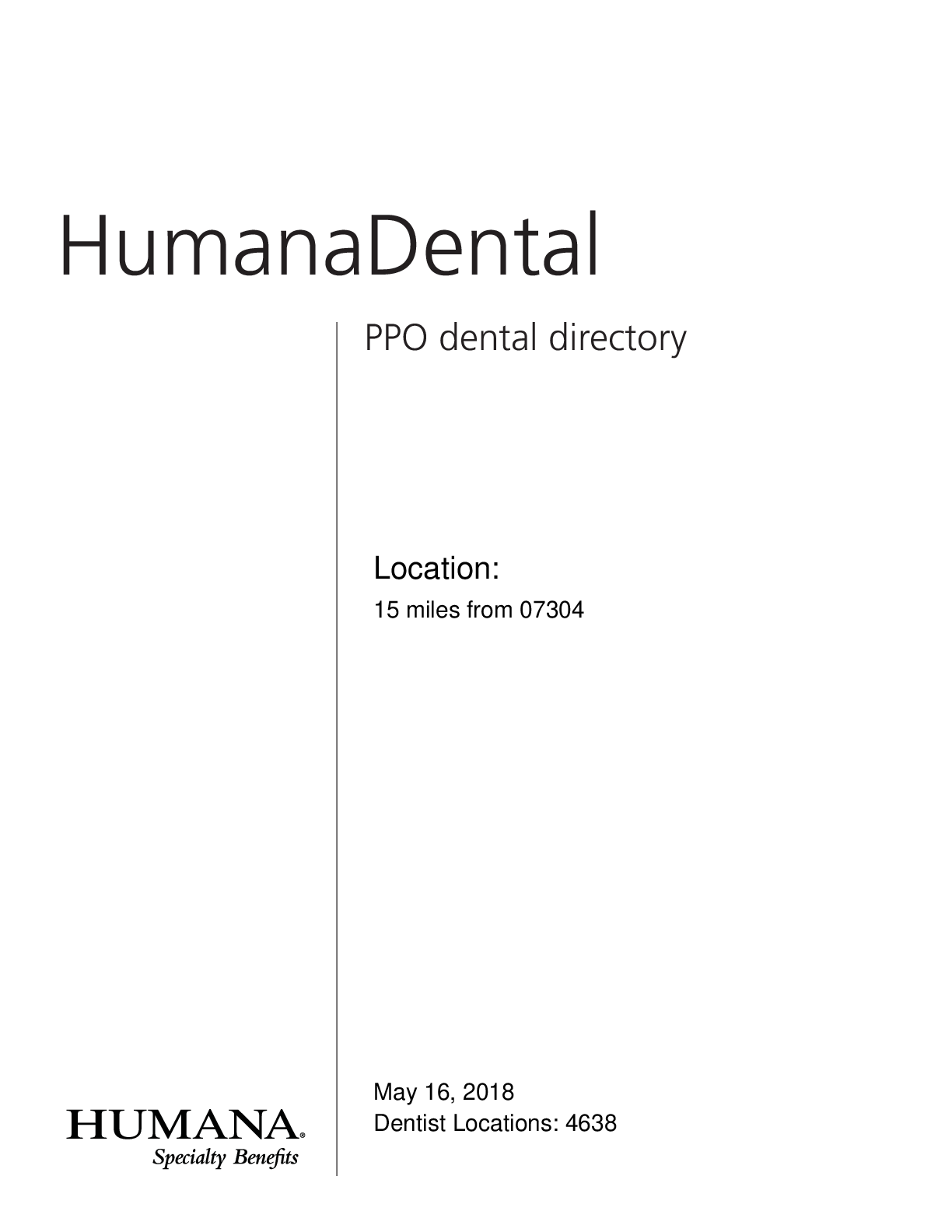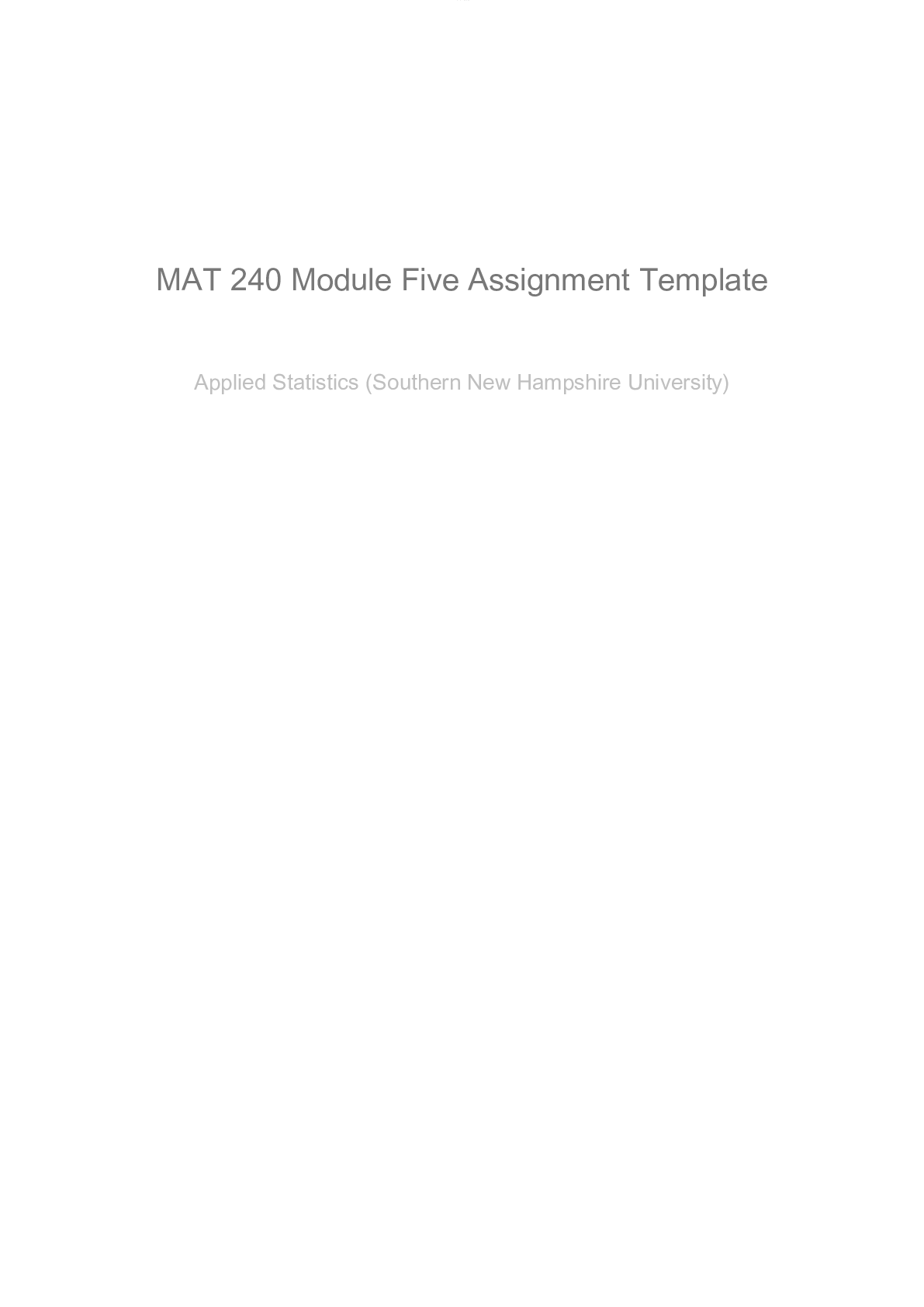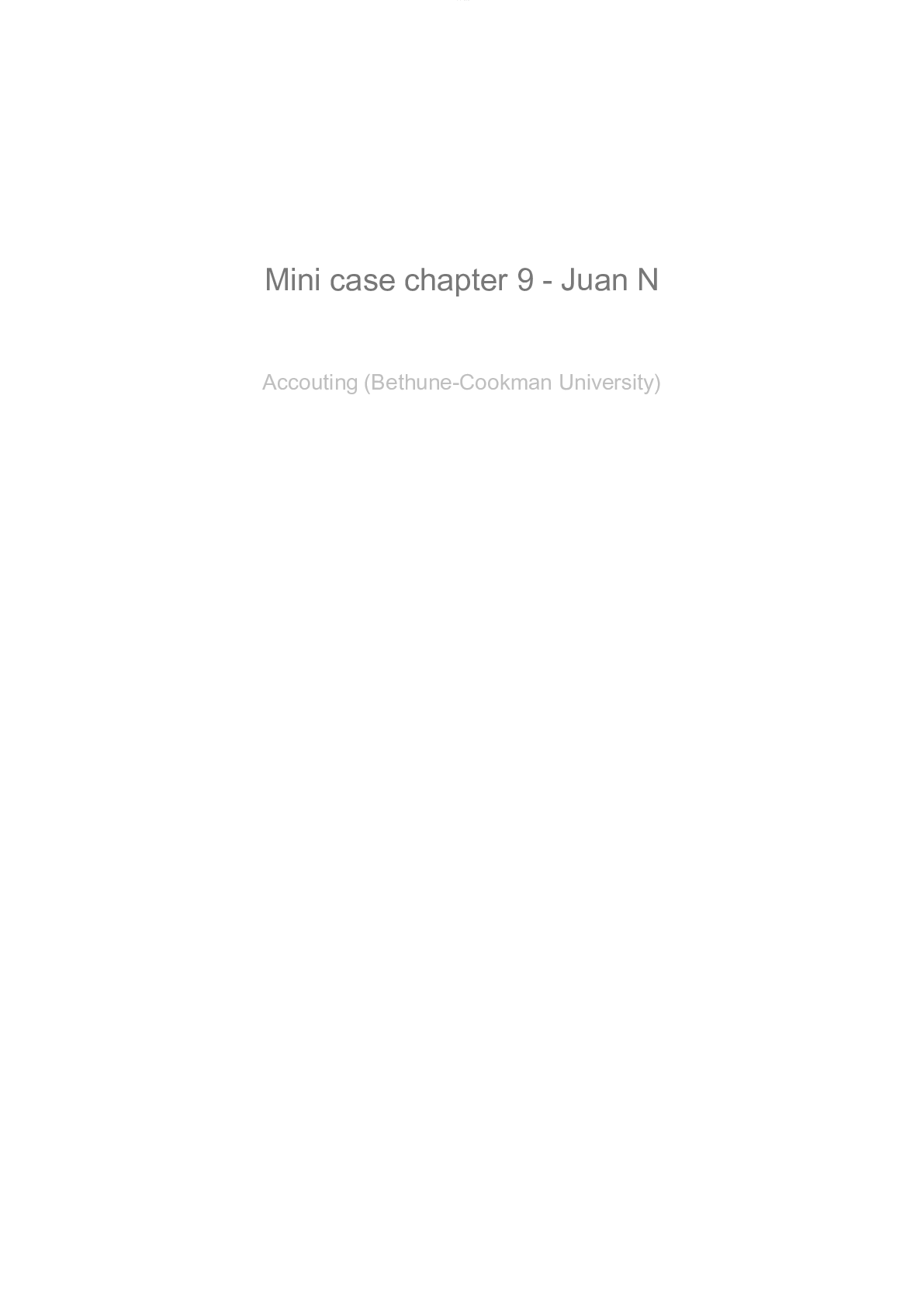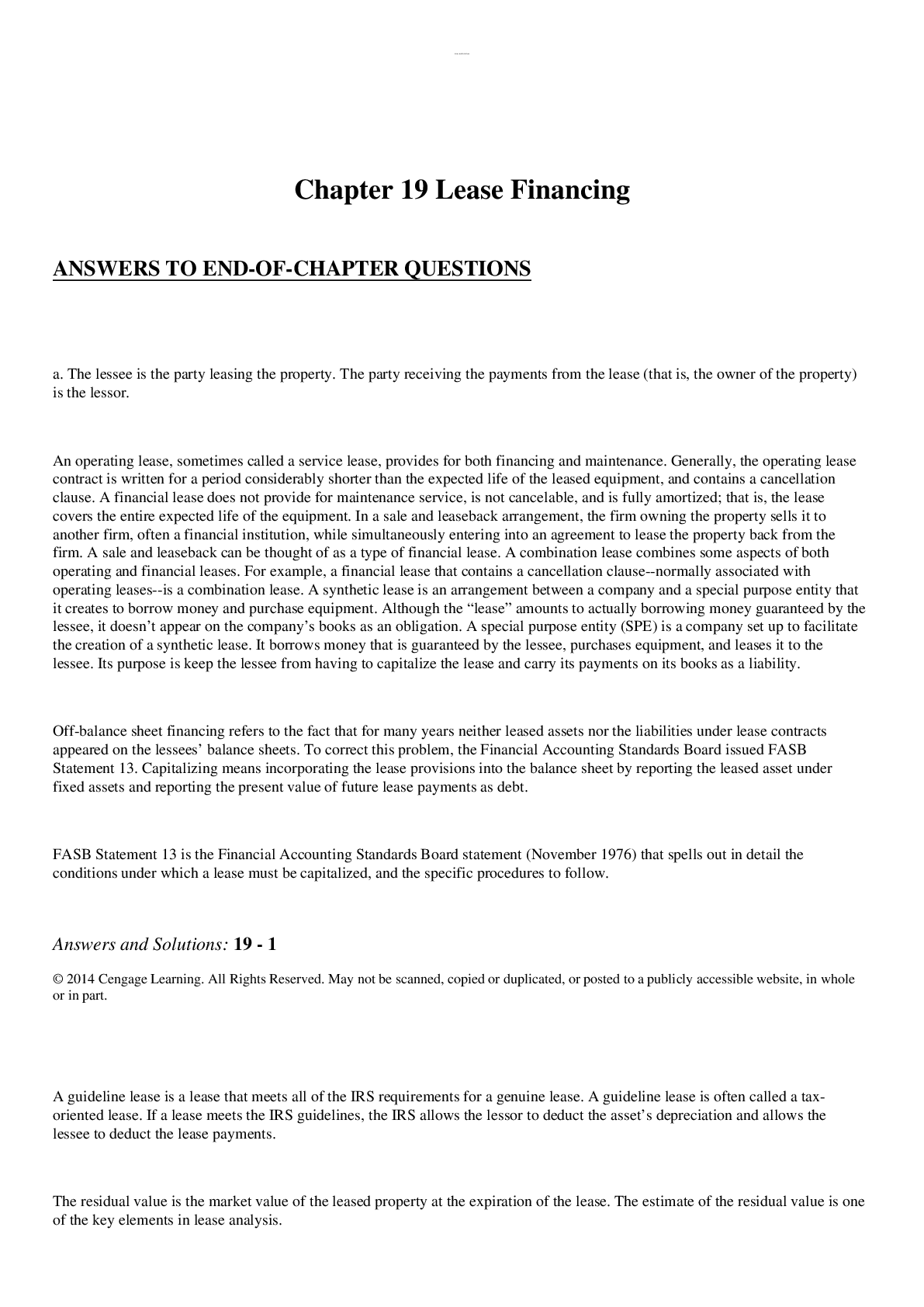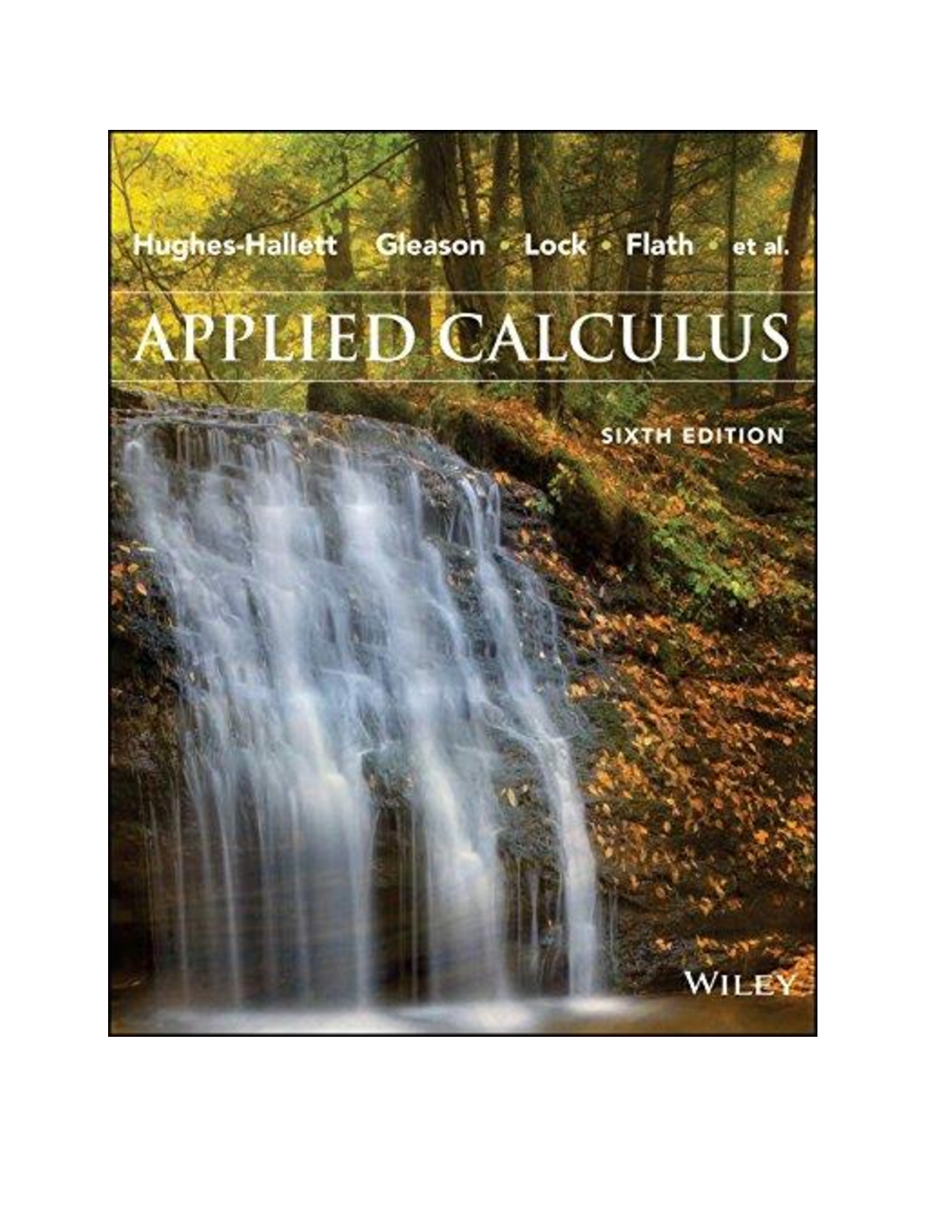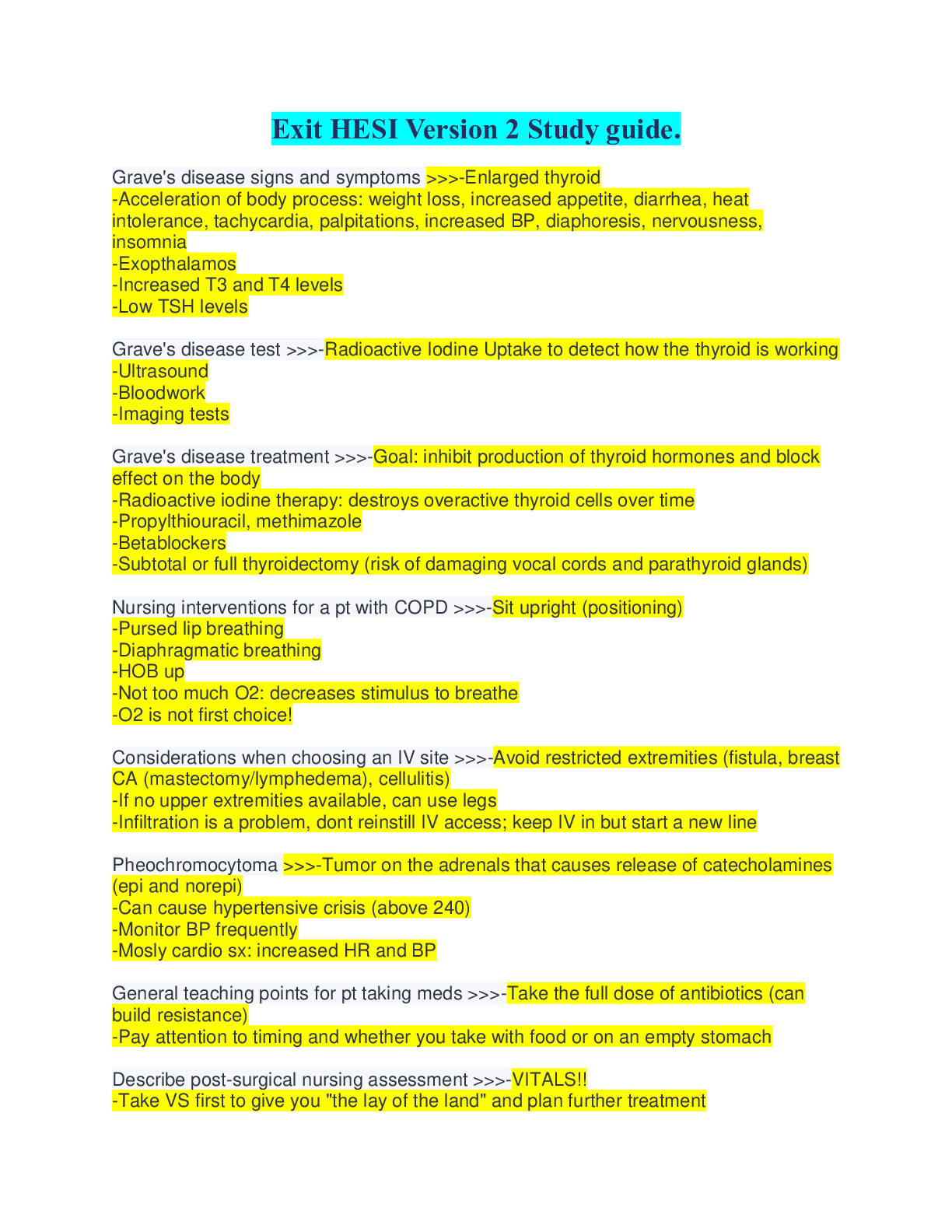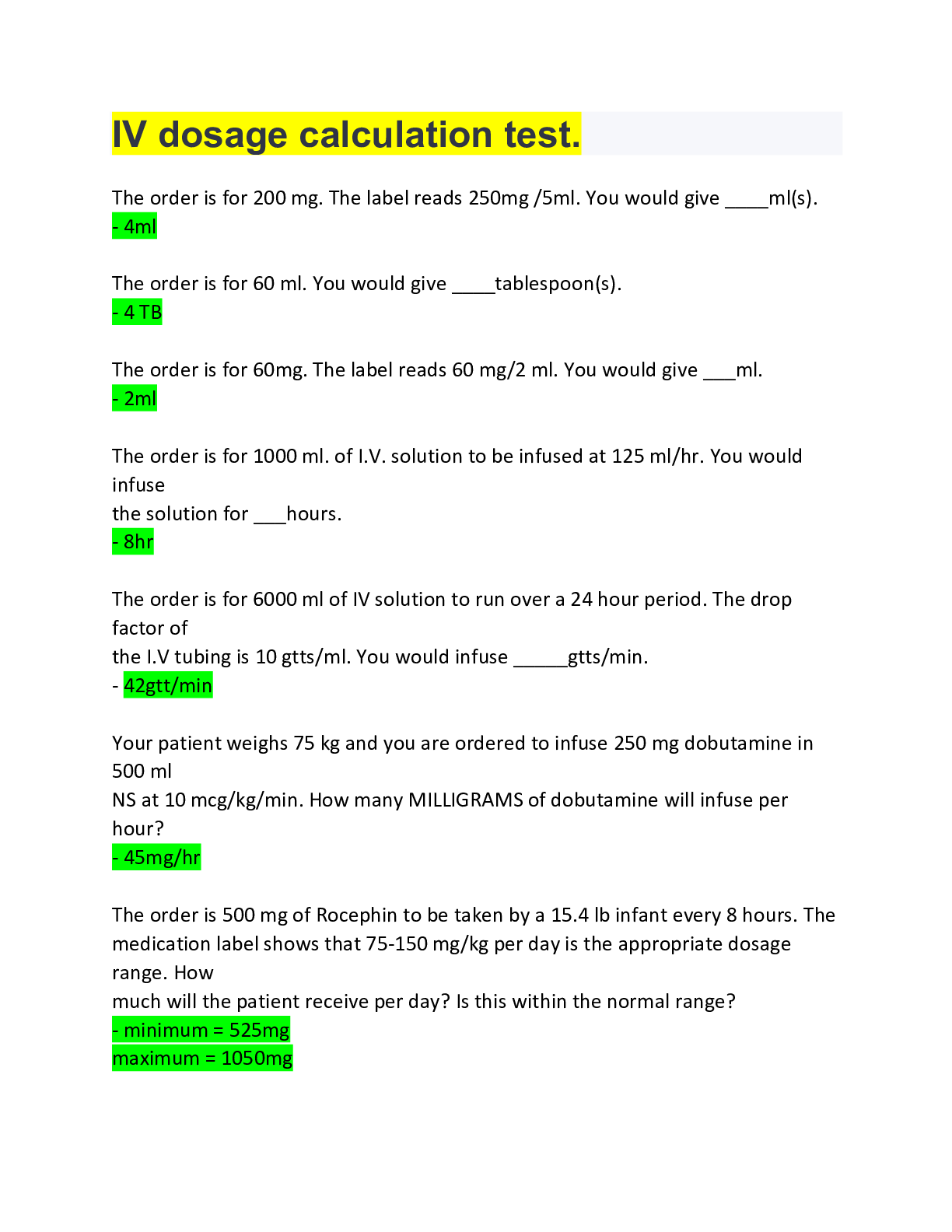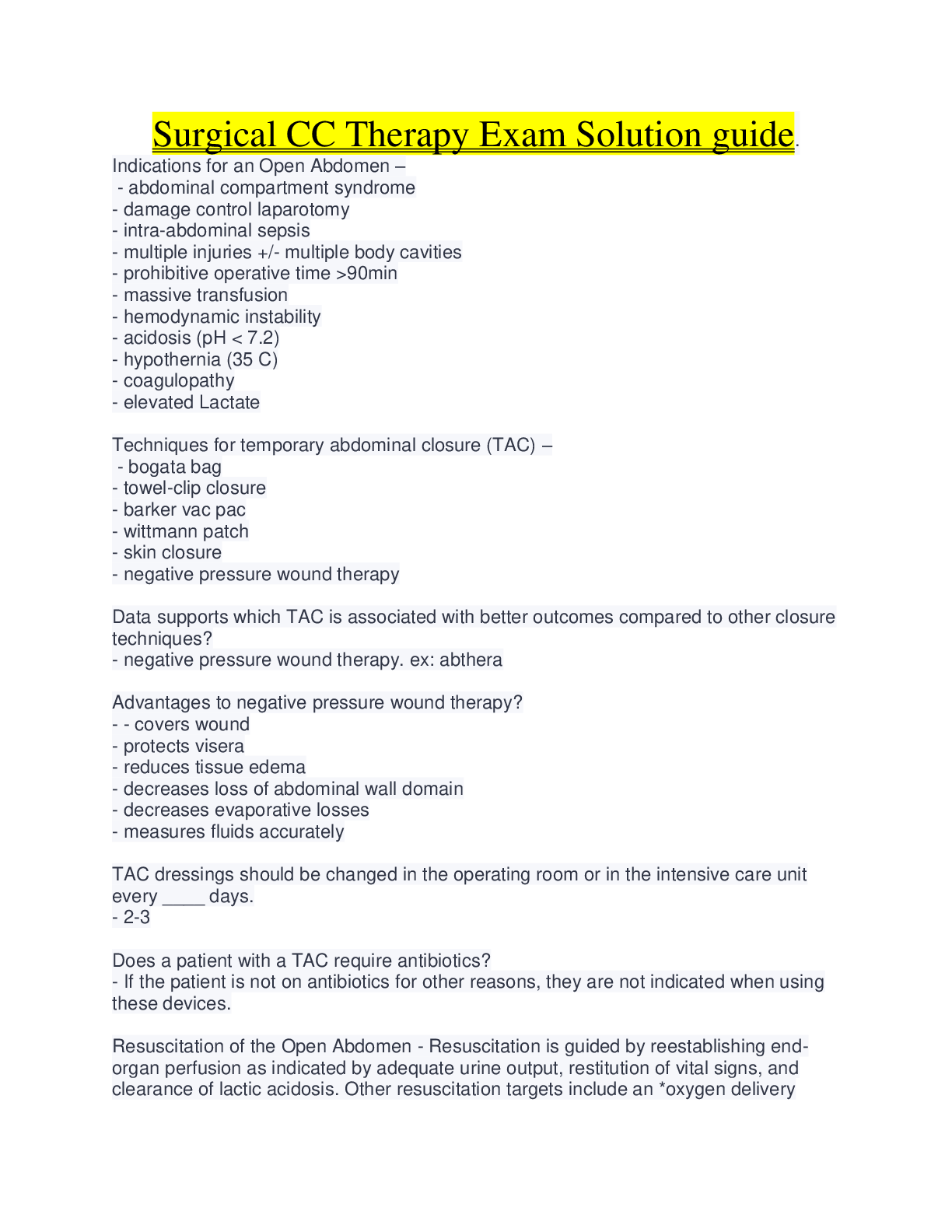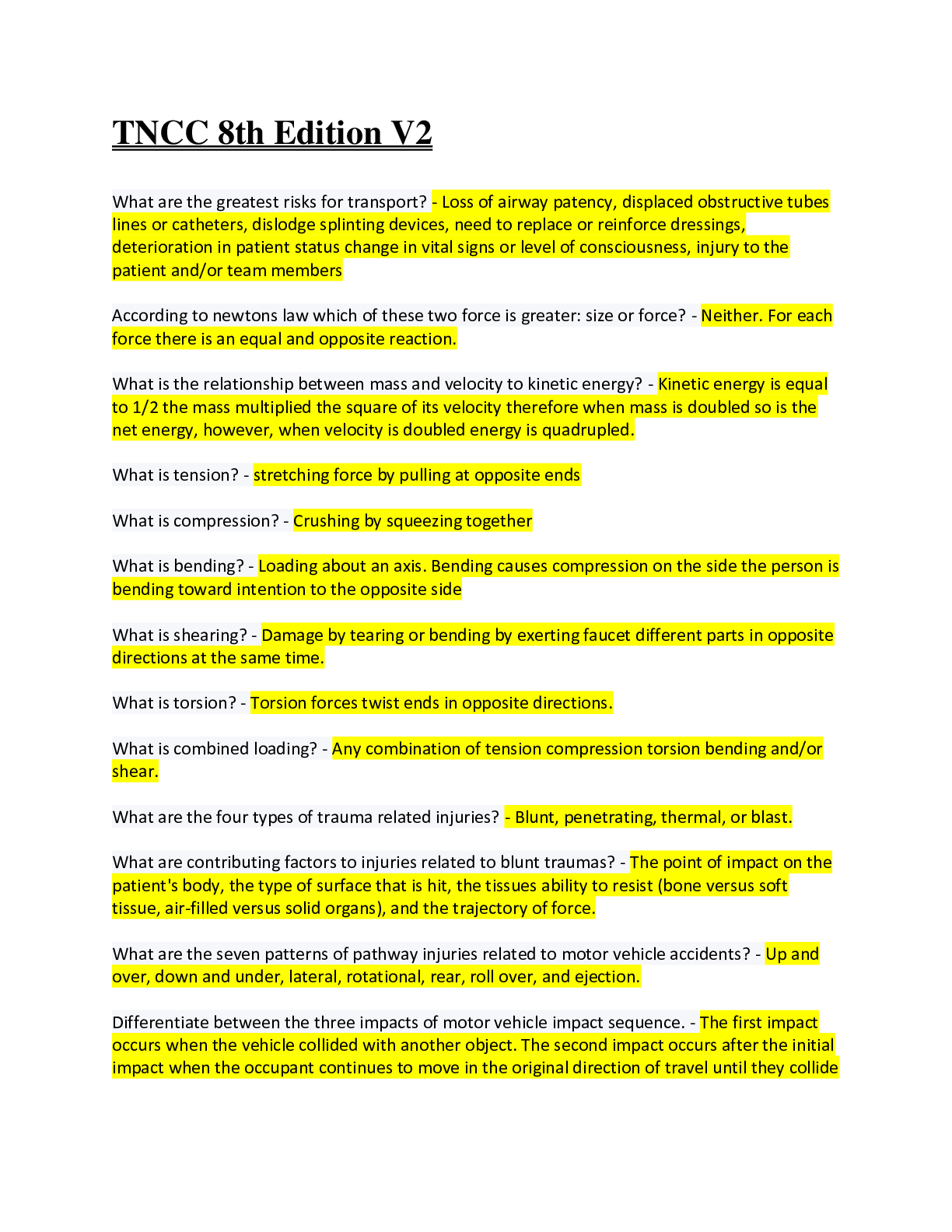General Questions > Solutions Guide > Test-Taking Strategies (All)
Test-Taking Strategies
Document Content and Description Below
Test-Taking Strategies This section contains a list of test-taking strategies that you may find helpful as you work through the test. By taking what you know and applying logical thought, you can ma... ximize your chances of answering any question correctly! It is very important to realize that every question is different and every person is different: no single strategy will work on every question, and no single strategy will work for every person. That’s why we’ve included all of them here, so you can try them out and determine which ones work best for different types of questions and which ones work best for you. Question Strategies READ CAREFULLY Read the question and answer choices carefully. Don’t miss the question because you misread the terms. You have plenty of time to read each question thoroughly and make sure you understand what is being asked. Yet a happy medium must be attained, so don’t waste too much time. You must read carefully, but efficiently. CONTEXTUAL CLUES Look for contextual clues. If the question includes a word you are not familiar with, look at the immediate context for some indication of what the word might mean. Contextual clues can often give you all the information you need to decipher the meaning of an unfamiliar word. Even if you can’t determine the meaning, you may be able to narrow down the possibilities enough to make a solid guess at the answer to the question. PREFIXES If you're having trouble with a word in the question or answer choices, try dissecting it. Take advantage of every clue that the word might include. Prefixes and suffixes can be a huge help. Usually, they allow you to determine a basic meaning. Pre- means before, post- means after, pro - is positive, and de- is negative. From prefixes and suffixes, you can get an idea of the general meaning of the word and try to put it into context. HEDGE WORDS Watch out for critical hedge words, such as likely, may, can, sometimes, often, almost, mostly, usually, generally, rarely, and sometimes. Question writers insert these hedge phrases to cover every possibility. Often an answer choice will be wrong simply because it leaves no room for exception. Be on guard for answer choices that have definitive words such as exactly and always. SWITCHBACK WORDS Stay alert for switchbacks. These are the words and phrases frequently used to alert you to shifts in thought. The most common switchback words are but, although, and however. Others include nevertheless, on the other hand, even though, while, in spite of, despite, regardless of. Switchback words are important to catch because they can change the direction of the question or an answer choice. [Show More]
Last updated: 1 year ago
Preview 1 out of 393 pages
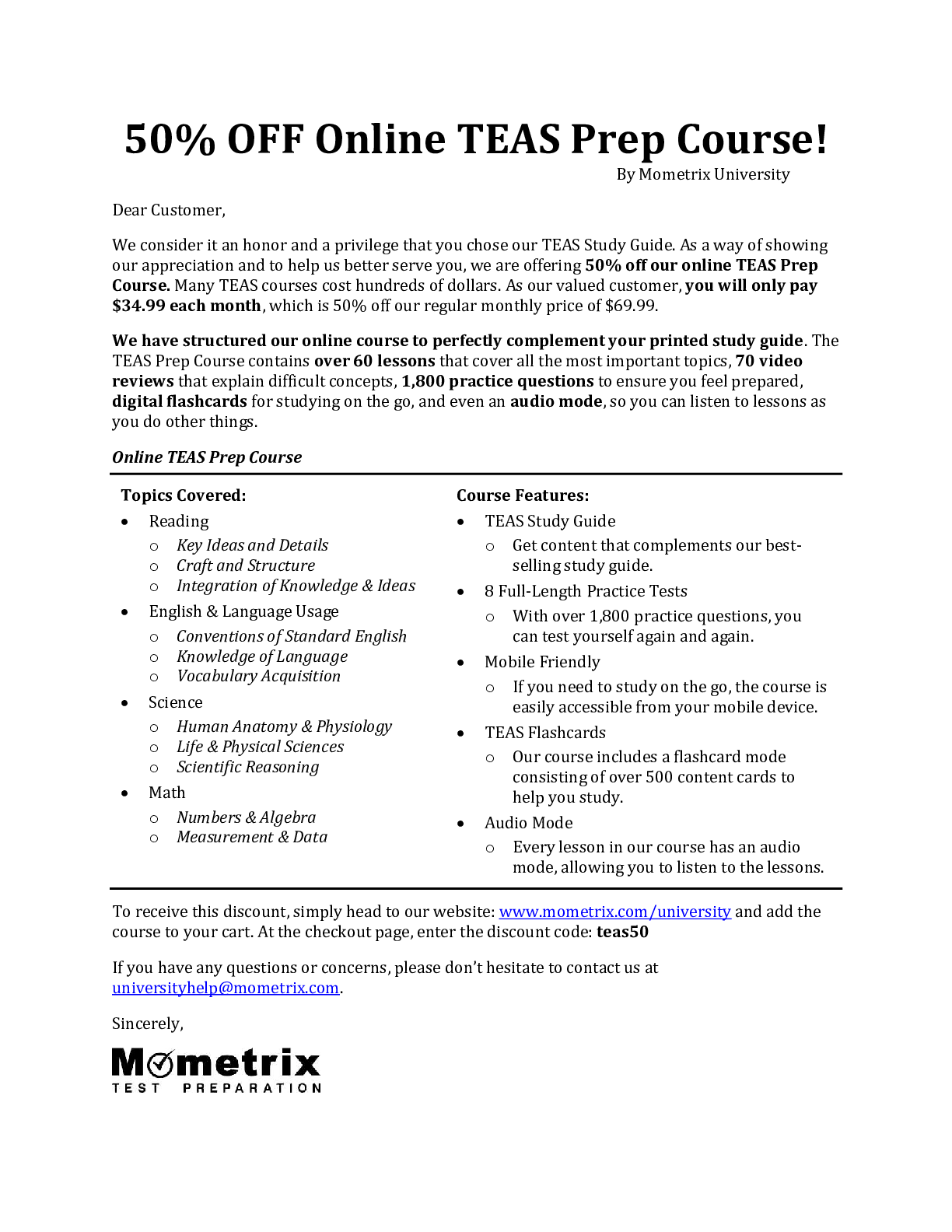
Reviews( 0 )
Document information
Connected school, study & course
About the document
Uploaded On
Aug 11, 2022
Number of pages
393
Written in
Additional information
This document has been written for:
Uploaded
Aug 11, 2022
Downloads
0
Views
37



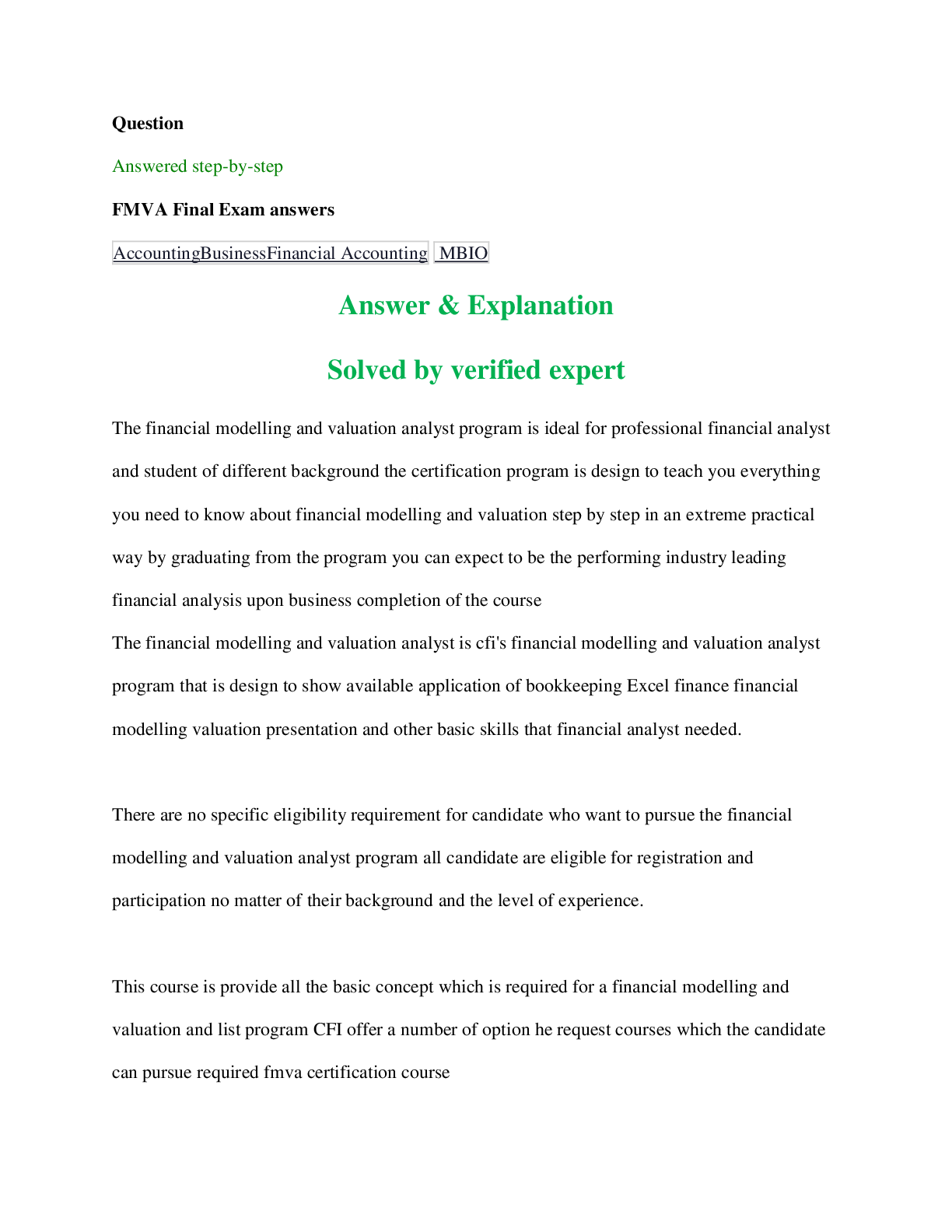
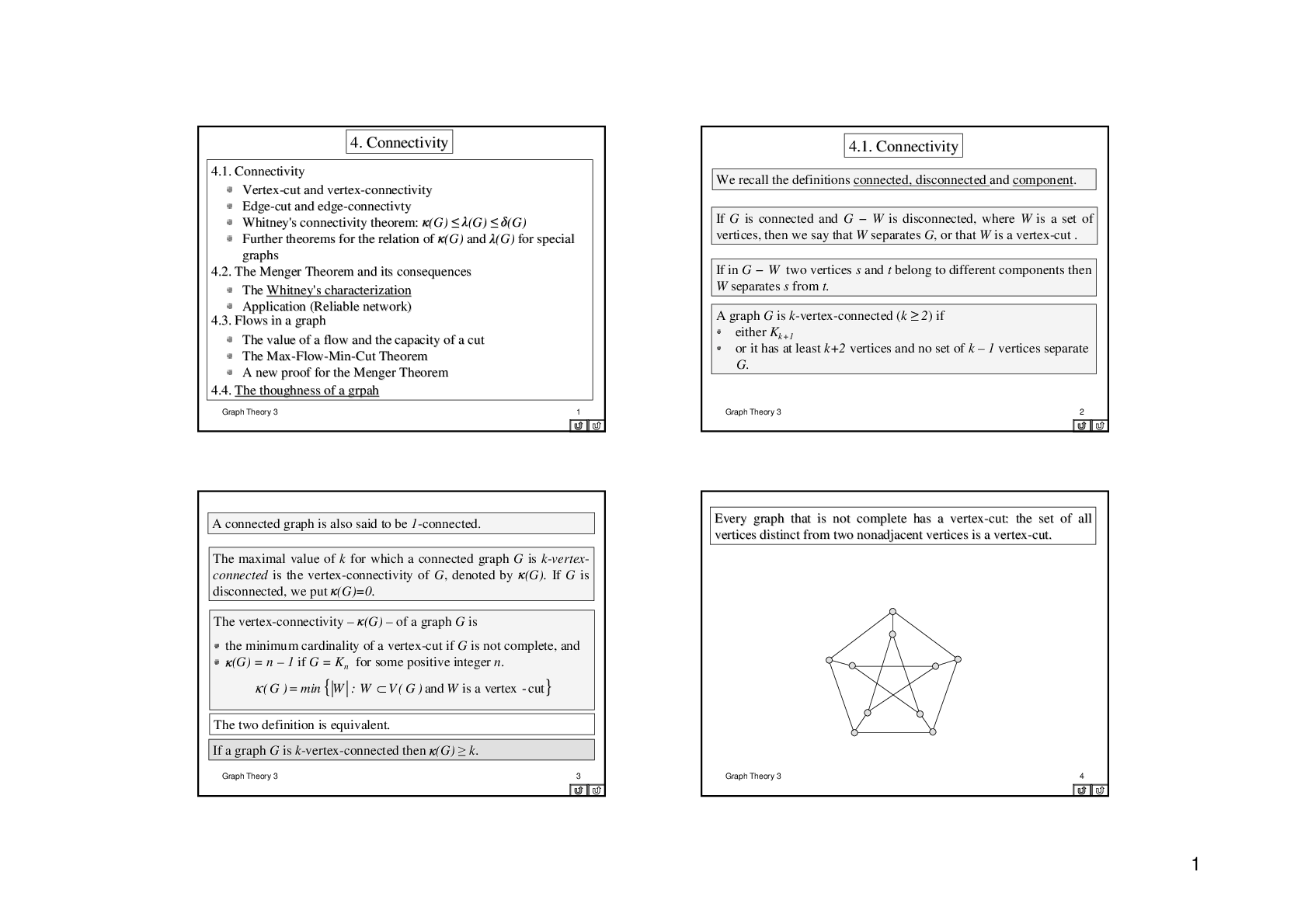
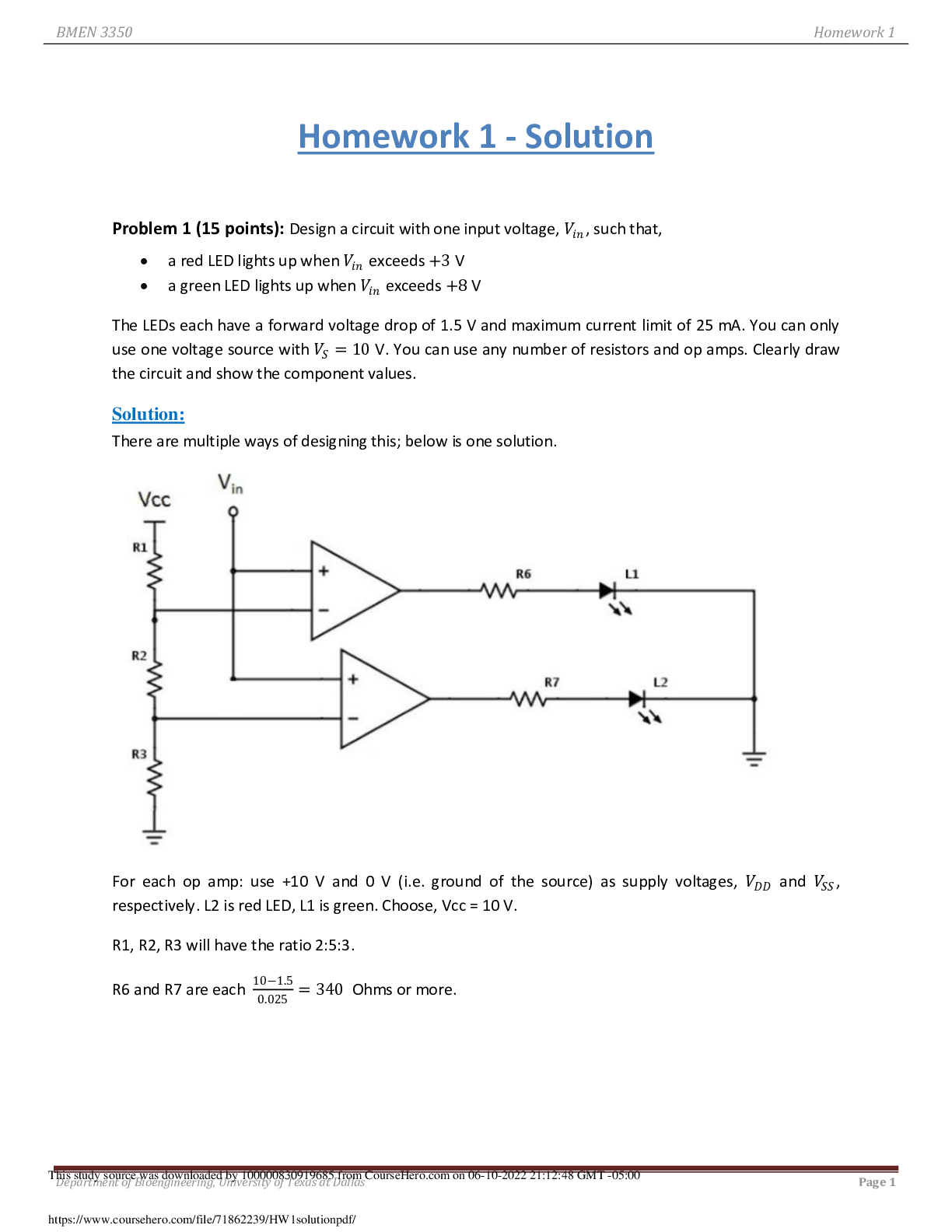
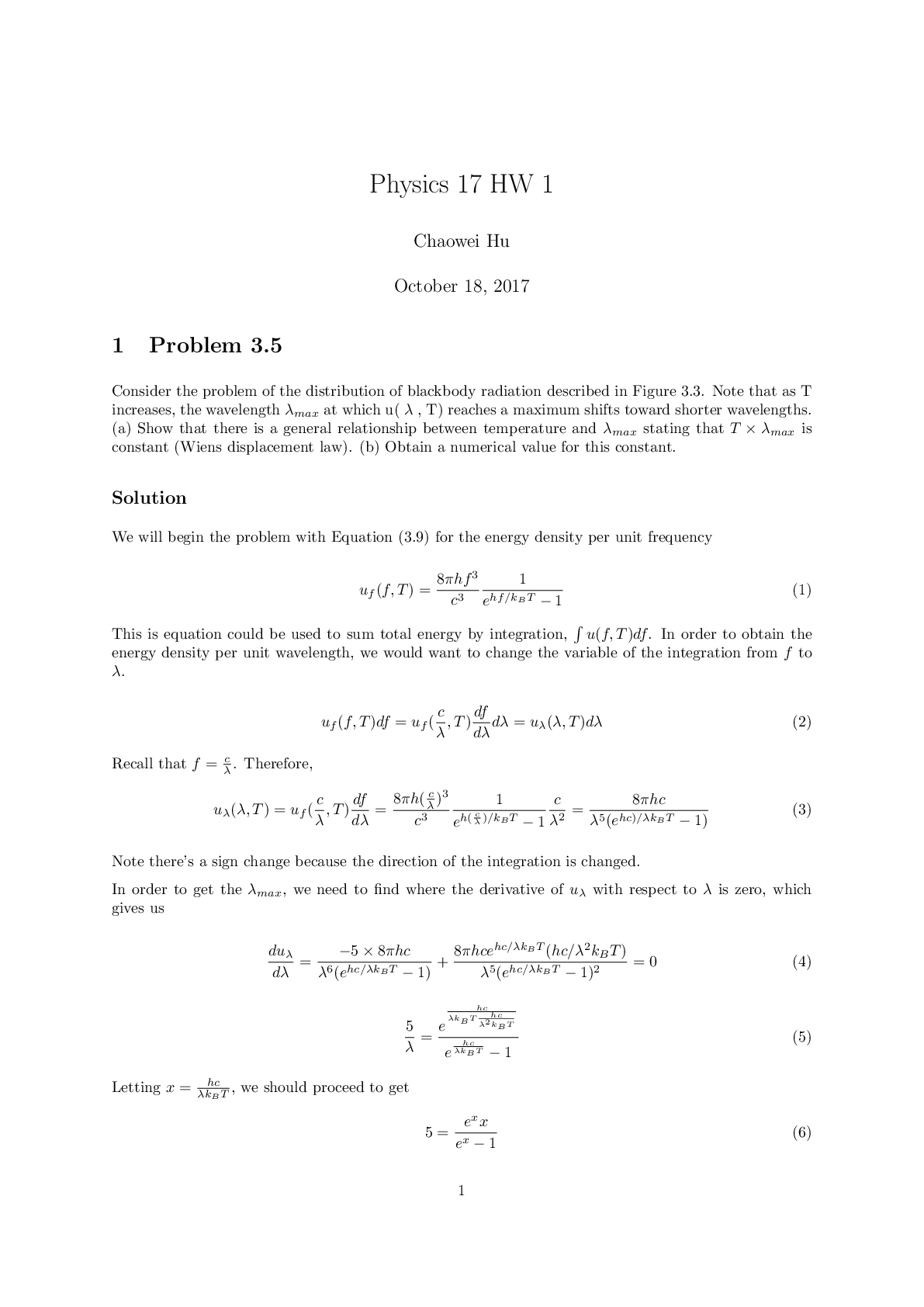
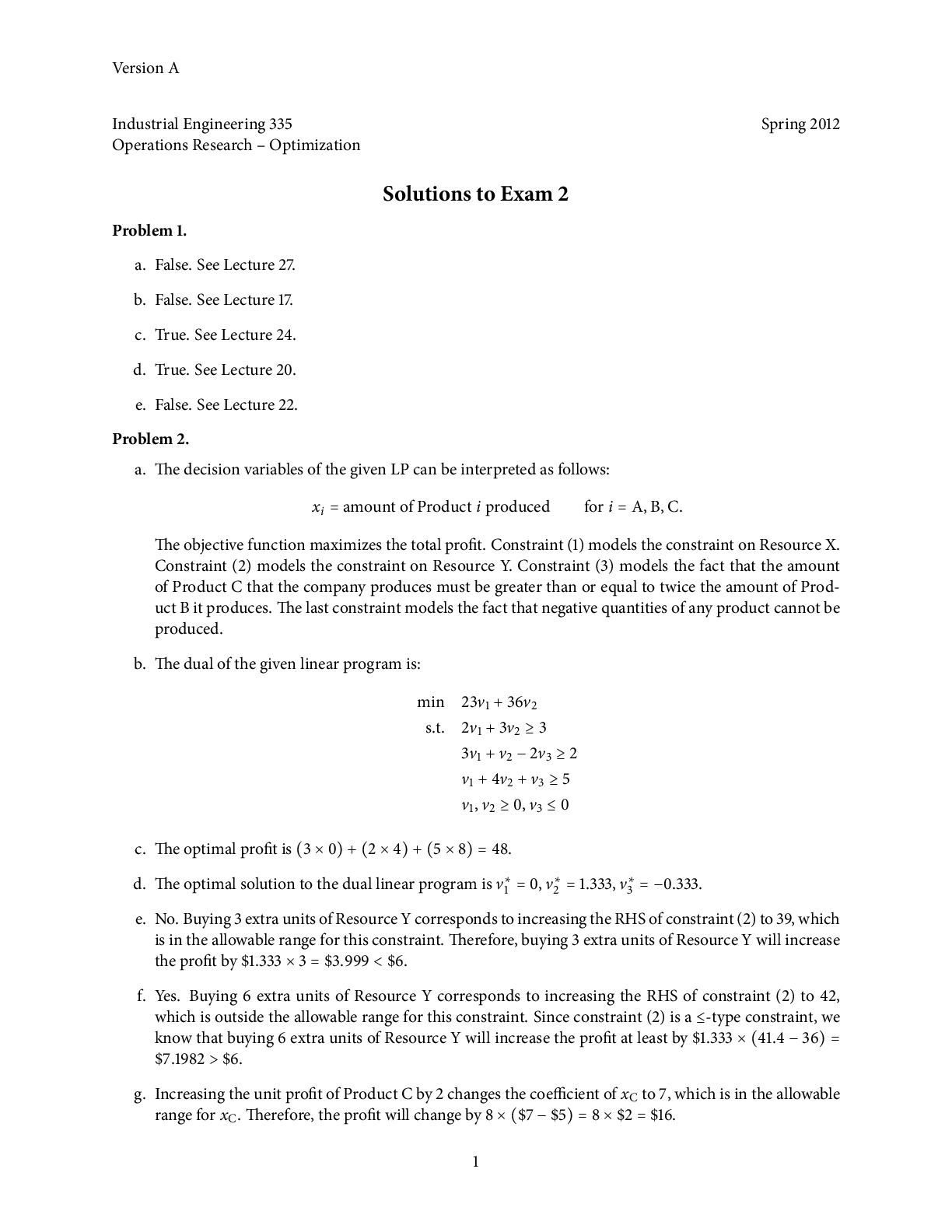
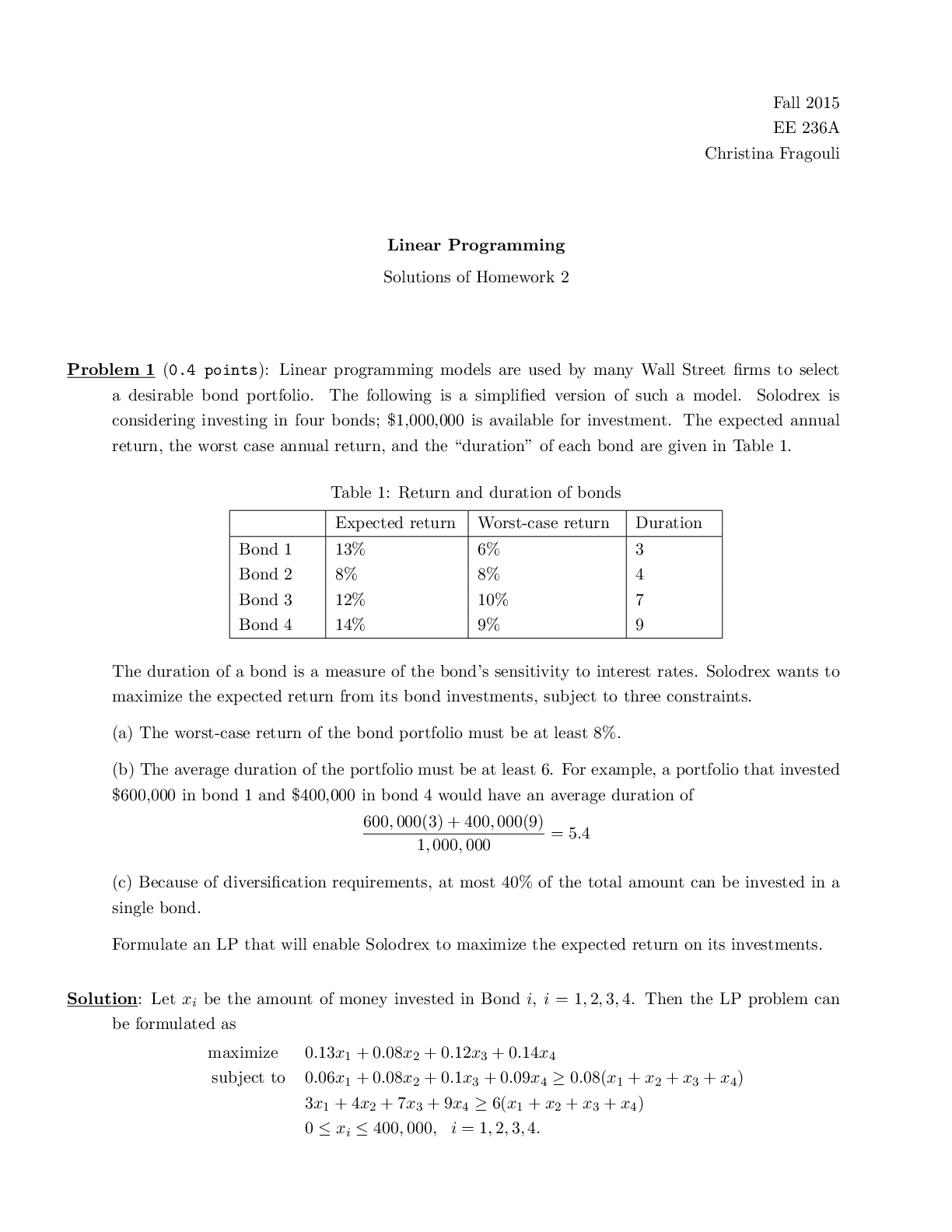

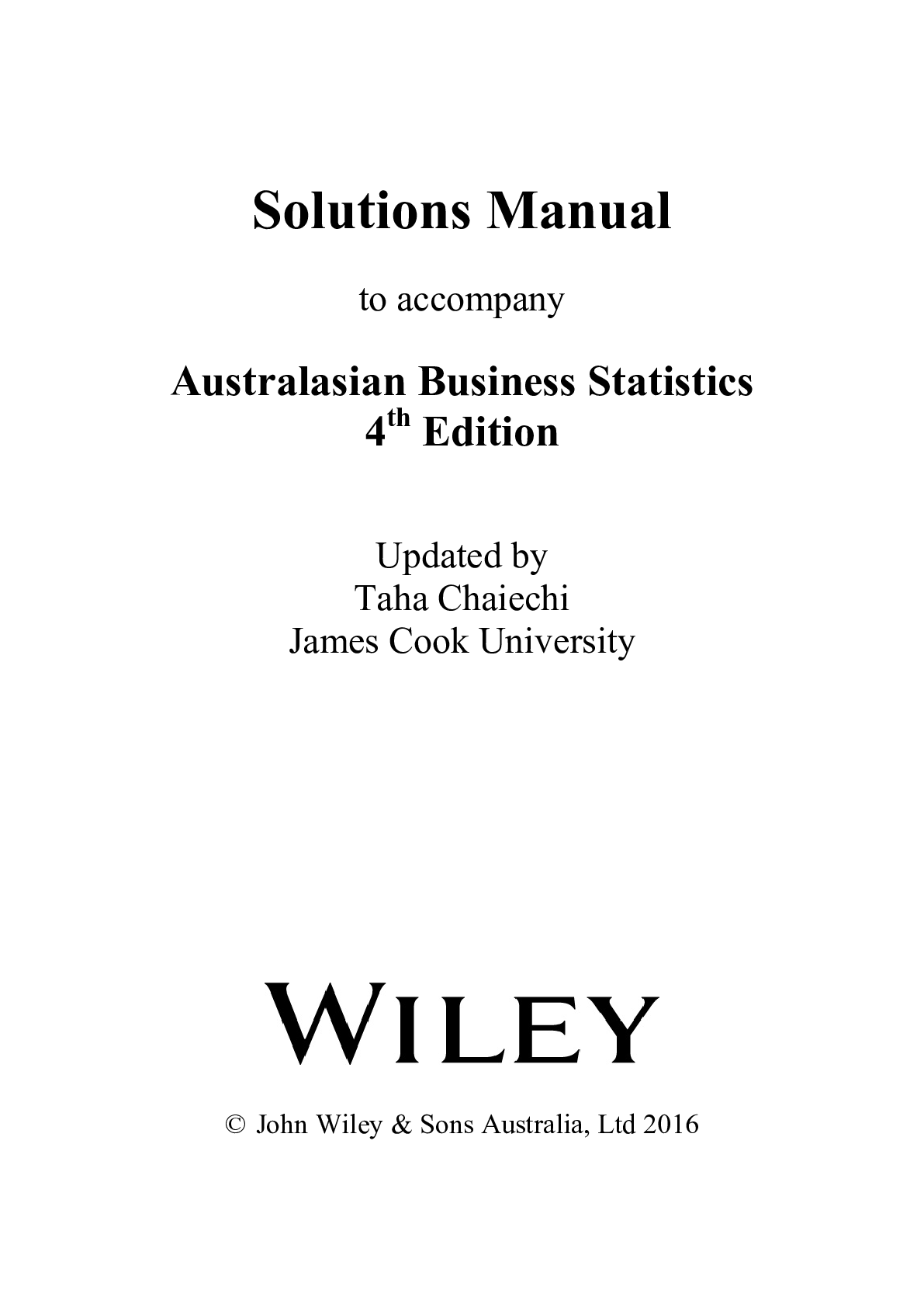

.png)
